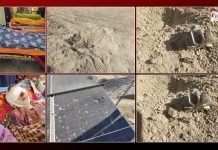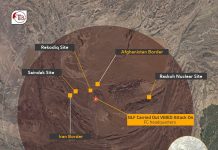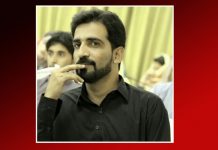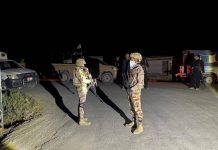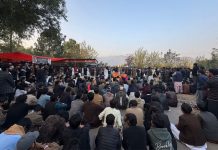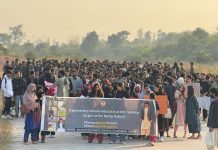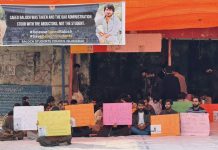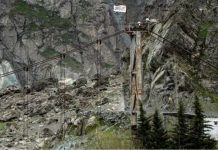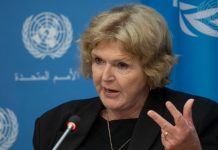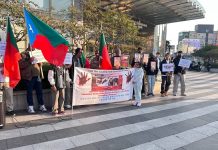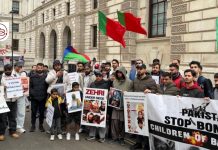Pakistani military and the Police used brute force to quash the protests of Gwadar’s fishermen. Hundreds of activists including leader of Haq Do Tehreek, Waja Hussain Wadhela, were arrested. These events resulted in further aggravation of the situation, and the conditions remained sensitive in different areas of Gwadar including in Jeewani, Peeshukan, Ormara, Sirbundar and Pasni. Several of Haq Do Tehreek’s activists and leaders still remain in jails across Balochistan.
To calm the unrest in Gwadar, negotiations were held in presence of Jumait Islami leader Liaqat Baloch between Pakistani military officers and leaders of Haq Do Tehreek. During these talks, Pakistani military’s core commander of Quetta, General Asif Ghafoor, threatened that if any such protests were held again in Gwadar then everyone will be put behind bars. Similar threats were made by General Asif Ghafoor against Pashtuns when he infamously said that everything is fine in love and war. Since Asif Ghafoor has become core commander of Quetta, the forcible disappearances of Baloch youth has intensified even further.
The core commander’s threats attracted widespread criticism and condemnation from political parties and politicians. Kaka Sulaiman of Haq Do Tehreek clarified that such threats will not deter them from demanding their lawful rights, and their movement cannot be quashed. Baloch National Movement’s Secretary General, Dil Murad Baloch, said that General Asif Ghafoor’s threat highlights the neocolonial status of Balochistan.
The mentality to suppress political and peaceful uprisings with brute force is not limited to Asif Ghafoor but has been the approach of the whole state and its military. The military operations and subsequent martyrdom of Nawab Akbar Khan Bugti were blamed on General Musharaf but the practice of using violence against the Baloch movement continues to this date.
Political parties that are affiliated with national liberation movement have continuously been banned, which has closed all avenues for peaceful protests in Balochistan. This attitude confirms the stance of the political parties that believe peaceful struggle in Pakistan is futile and only armed resistance is the key to national salvation.





